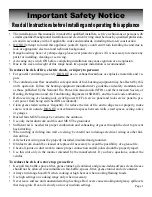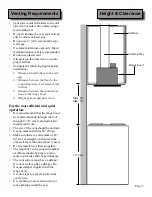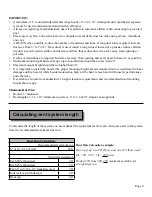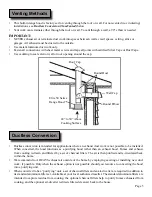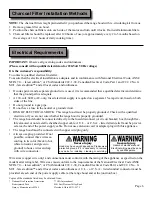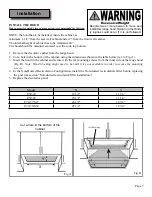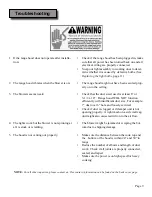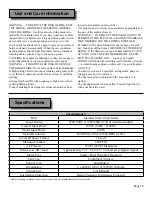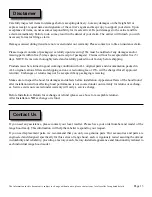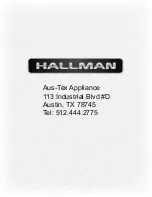
Page 3
Venting Requirements
Vent system must terminate to the out
-
•
side (roof or side wall), unless using a
recirculating kit.
Do not terminate the vent system in an
•
attic or other enclosed area.
Do not use 4” (10.2 cm) laundry-type
•
wall caps.
Use metal/aluminum vent only. Rigid
•
metal/aluminum vent is recommended.
Do not use plastic vent.
•
Always keep the duct clean to ensure
•
proper airflow.
Calculate the following figures before
•
installation:
Distance from the floor to the ceil
-
1.
ing.
Distance between the floor to the
2.
countertop/stove (recommend 24in
to 30in).
Distance between the countertop/
3.
stove to the range hood.
Height of hood and duct cover.
4.
For the most efficient and quiet
operation:
It is recommended that the range hood
•
be vented vertically through the roof
through 6” (15 cm) round metal/ alu
-
minum vent work.
The size of the vent should be uniform.
•
Use no more than three 90° elbows.
•
Make sure there is a minimum of 24”
•
(61 cm) of straight vent between the
elbows if more than one elbow is used.
Do Not install two elbows together.
•
The length of vent system and number
•
of elbows should be kept to a mini
-
mum to provide efficient performance.
The vent system must have a damper.
•
If roof or wall cap has a damper, Do
Not use damper supplied with the
range hood.
Use duct tape to seal all joints in the
•
vent system.
Use caulking to seal exterior wall or
•
roof opening around the cap.
Height & Clearance
Cabinet
Range hood
Venting Pipe
36” base
Min:
24”
Max: 30”


